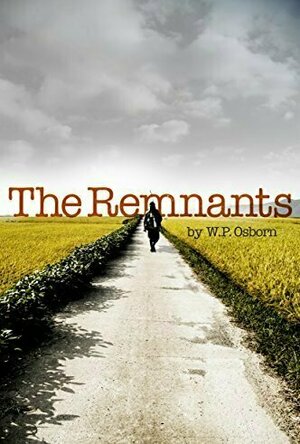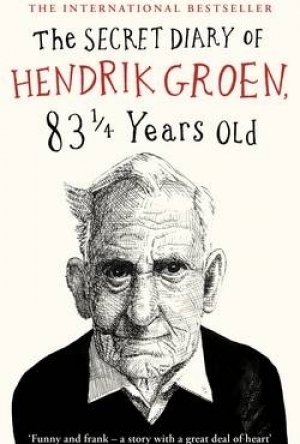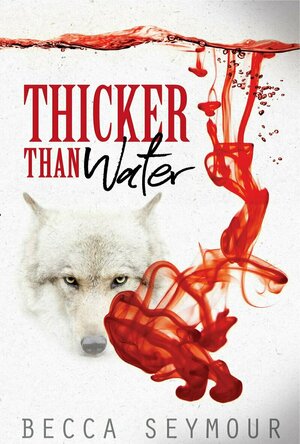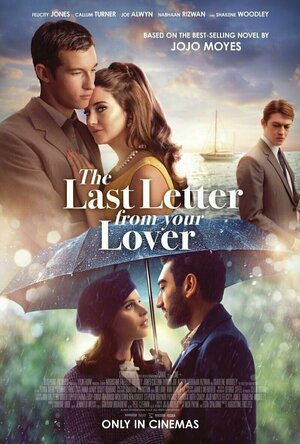
The Practice of System and Network Administration: Volume 1: Devops and Other Best Practices for Enterprise it
Strata R. Chalup, Thomas A. Limoncelli and Christina J. Hogan
Book
With 28 new chapters, the third edition of The Practice of System and Network Administration...
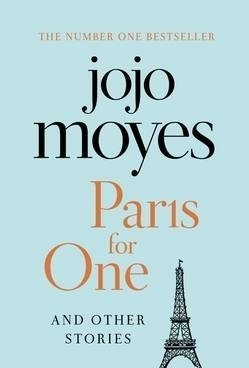
Paris for One and Other Stories
Book
A collection of 11 unmissable short stories from the Number One internationally bestselling author...
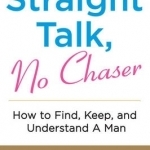
Straight Talk, No Chaser: How to Find, Keep, and Understand a Man
Book
In the instant Number 1 "New York Times" bestseller "Act Like A Lady, Think Like A Man", Steve...
Kara Skinner (332 KP) rated The Remnants in Books
Sep 10, 2019
Average Goodreads Rating: 4.26/5 stars
My rating: 3/5 stars
Danny Pulbrook is a handsome and rebellious young man. Born the bastard son of a minor royal and orphaned at birth he is determined to find a new life far beyond his “pre-ordained oblivion”. His only way out – a forced enlistment into the army brings him to an inevitable confrontation with his own demons in the cauldron of the first world war.
Rose Quayle is a beautiful and confident hazel-eyed housemaid who, like her mother and her mother’s mother is employed in service at Meaford House – an expansive vice-regal estate near Tunbridge Wells. Like Danny she longs for a life beyond the tyranny of the rigid class system that defines her humble destiny.
Their chance meeting becomes the catalyst that changes both of their lives forever.
The Remnants is like a fixer upper. It’s unpolished and a bit of a hot mess, but you can still see the potential. Unfortunately, The Remnants was published before it got the TLC it deserved.
Not only is the text plagued with typos and missing punctuation, but there are too many storylines and character to keep straight. It’s a hot mess that could have been amazing.
The story starts out on a seemingly inconsequential day, with two minor characters talking. Yes, minor. They’re barely in the story but they make up the opening scene that eventually introduces Rose as a young, innocent girl going on her first car ride. So far there’s promise. After all, the boggy description will clear up when the story gets going, right?
I wish.
But it does pick up when we meet lovable bad boy Danny. Straight from an orphanage and now working at a general store, he’s a troublemaker and has never known love of any sort. He’s convinced he’s unlovable. Perfect for a love interest. I do have a thing for the bad boys. Give them a vulnerable side and I’m practically putty.
Rose and Danny have an excellently sweet and innocent chance encounter that clashes with the darkness in the rest of the book. Actually, there’s no foreshadowing at all that things will go so horribly awry when they met, or how dark most of the book is.
But dark it is. Danny goes off to fight in India, leaving Rose behind, but promising to still see her. After realizing he will die unless he deserts the army, he runs away and Rose goes to live with him in Canada
Had this been split into two or three full-length novels with the first novel ending here, I would have liked it a lot. But instead this great beginning with Danny’s and Rose’s innocence isn’t given the full detail and development it deserves, instead being condensed to the beginning of the novel.
But unfortunately it gets worse. Because the story continues. With so many characters that it’s impossible to keep them straight.
Danny’s character takes a sharp left when he feels the need to go to war again, this time with the Canadian army. He and Rose had practically just found each other and now he’s going back to fight, and after he had almost died the last time? Yeah. That makes total sense. What is he, an addict all of a sudden?
The entire story goes in a whirlwind. Danny has such a steep character arc, from innocent teenaged boy to hardened veteran, it might as well be a character cliff. Rose, on the other hand, doesn’t have that much character to arc. She’s slightly more bitter by the end, but she had already been bitter in the beginning of the story. Her lack of character frustrates me to no end.
There are some good parts to this story, though. Rose’s experience in the workplace was well-written, as was the death of Grace, Danny’s girl on the side. His war buddy, Mitch, is an excellent character and funny as hell, even if he is a bit cliched. The dynamic between Danny and his comrades is actually very good and I wish I had seen more of that and less flowery description about the war atmosphere.
While this story is mildly entertaining, well-researched, and interesting, it’s not my favorite and I will definitely not be reading it again. What do you think? Does this book sound interesting to you?
Hazel (1853 KP) rated The Secret Diary of Hendrik Groen, 83 Years Old in Books
May 25, 2017
Think Adrian Plass but with octogenarians and this is the result. The Secret Diary of Hendrik Groen, 83 ¼ Years Old is a years long journal beginning on 1st January 2013. Hendrik hates old people, an unfortunate predicament as he live in a home for the elderly. He set himself the task of writing a daily account about the “life of the inmates of a care home in North Amsterdam,” with the purpose of it being read after his death by readers, or “inmates” who wish to know what to expect in their old age.
Whether the contents of this diary are true or exaggerated does not matter, as what it produces is a laugh-out-loud story, a pleasure to read. From cake in the fish tank, to complaints about leaky nether regions, Hendrik provides a brutally honest account of the highs and lows of being an OAP.
The Secret Diary of Hendrik Groen, 83 ¼ Years Old encompasses a selection of unique and presumably real characters. Readers are bound to discover someone who reminds them of an elderly relative, or even themselves! There is the diabetic, rude, gin loving Evert – Henrdik’s best friend of many years – who is never without a witty comeback for the bossy, self-important director of the home. On the other hand, levelheaded Eefje, who Hendrik is rather fond of, shows a completely different view of elderly mentality. Despite the stereotypes associated with care home patients, Hendrik and friends still have as much fun as possible; after all, they may be Old but not Dead.
Speaking of dead, Hendrik makes a number of jokes and references to euthanasia, which may seem like poor taste to some readers. However, when all the friends around you are literally living the final years of their lives, why not joke about it instead of worry? Naturally there are sad diary entries about the inevitable deaths of his contemporaries throughout the year, but Hendrik does not let it get him down for long. Hendrik and his close friends make the most of the time they have left, and if that involves speeding along the roads of Amsterdam on their souped-up mobility scooters, then that is exactly what they will do.
The Secret Diary of Hendrik Groen, 83 ¼ Years Old is a gem of a book and comes highly recommended to readers of all ages. Hendrik ‘s effortlessly funny, sarcastic remarks stress what the average citizen is too polite to voice. Once you begin it is hard to put down. Unfortunately a year is not long enough and you will end up wanting more. Whatever the future holds for us, let’s hope we become someone like Hendrik Groen.
Debbiereadsbook (1664 KP) rated Thicker Than Water in Books
Mar 18, 2020
Callen finds Thatch, the leader of a black ops task force, bleeding and bitten when he goes against orders, again. But Thatch was bitten by Callen's sister, and his niece is now missing and Thatch might be the only link to finding the child. But as the investigation spreads its net, Callen is forced to make some decisions, decisions that could cost him his heart.
I really REALLY enjoyed this from Ms Seymour! She usually writes fairly fluffy, contemporaries and this isn't fluffy, nor contemporary but it is great!
I loved the twist to werewolf lore, that the oly way for a wolf to be made is to be bitten. But that act kills the wolf and transfers all their memories to the new wolf.
I loved the supporting cast, and all the little . .hints/clues/dropped comments . . .about them. Some questions wre thrown up, that haven't been answered here. However, in my personal experience, its best not to wait for those questions to be answered cos the last time I felt like this, I had a right proper hissy fit when those questions were NOT answered LOL So I won't voice those questions, and then I can't be dissappointed, right?
I loved Callen. He is funny and hilarious, and dark and deadly. He is deep and meaningful, but takes great pleasure in winding his friends up.
I loved that fact tht the bond between Callen and Thatch creep up on them, and there isn't that MINE moment at first meeting. It DOES come, but it's more growled out of Callen in reaction to someone else touching Thatch.
So why only 4 stars with all those things I loved?
Thatch isn't given a voice.
Now, I know I say it a lot, and I will continue to say it where I think it necessary but HERE I think it really needed. Thatch takes ALL of his Hazel's, Callen's sister, memories and thoughts and feelings. ALL of them. And that had to be confusing when they start to come through! When those memories sends them far north to find Hazel's daughter. When he comes face to face with that daughter. What was Thatch feeling? I needed that, I really did, and if I HAD Thatch, I have no doubt, not a single one, that this would have been a 5 star read.
I don't know if this is a stand alone, or there will be more of this group of people, I hope so, I really do!
But I don't get Thatch, and so. . .
4 good, great solid stars
**same worded review will appear elsewhere**
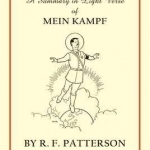
Mein Rant - A Summary in Light Verse of 'Mein Kampf'
R.F. Patterson and Heath Robinson
Book
R F Paterson was a great fan of Gilbert and Sullivan, and when Germany invaded Poland on 1st...

From the Fatherland with Love
Ryu Murakami, Charles De Wolf, Ralph McCarthy and Ginny Takemori
Book
An ambitious, epic dystopian novel - part political thriller and part satire. From the Fatherland,...
Emma @ The Movies (1786 KP) rated The Last Letter from Your Lover (2021) in Movies
Sep 5, 2021
When Ellie discovers a random love letter while searching the archives for assignment, it sets in motion a hunt for more letters. With each letter the mystery unfolds and Ellie's life changes with every heartfelt sentence.
This is based on a Jojo Moyes book (that as usual, I haven't read), and I believe that traditionally that means gut-wrenching feels?
A modern day love story that evolves around a love story of letters. As tales of romance go, this is a very compelling one. I understand that the film has been stripped back from the novel (as you'd expect), and from what I've heard about what's missing, it's probably done the film a favour by not getting bogged down in extra backstory.
Let's start at the beginning with Jennifer (played by Shailene Woodley). She's the perfect balance throughout the film, composed and demur, frantic and firey. And my god, I felt all of her emotions in every scene. Her performance was probably my favourite from the cast, especially when combined with Callum Turner as Anthony O'Hare.
The way the two of them interacted was compelling the whole way through, and the emotion felt so horribly real that I was bawling my eyes out. Turner's performance was understated but powerful... and it totally wrecked me.
Meanwhile, in the present, Ellie (Felicity Jones) and Rory (Nabhaan Rizwan) are discovering Jennifer and Anthony's hidden romance through letters uncovered in the archives where they work. These sections of the film gave me very strong vibes of Love Actually mixed with Last Christmas. On their own they were funny and cute moments, but I think the balance was just right. Any more of them and I'm not sure the film would have held quite the same appeal.
The historic scenes were beautiful, the settings, the costumes, absolutely stunning. It makes you nostalgic for a style that some of us have never even experienced.
As I said, I bawled my eyes out, but that wasn't how I felt all the way through. At the beginning of the film I was a little bored if I'm honest. I wasn't really getting along with what was happening, and I was a little annoyed that the first cut didn't clearly switch between past and present. But there was one point that had me sold, my heart was in my throat and the tears started... and I'm not convinced they stopped until the credits rolled.
Originally posted on: https://emmaatthemovies.blogspot.com/2021/09/the-last-letter-from-your-lover-movie.html

Arlo: An MM Age Play Daddy Romance
Book
When this little gets in trouble, it’s Daddy to the rescue THOMAS Since a knee injury forced...
